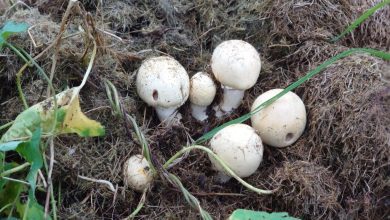Exploring the Pros and Cons of Using Vinegar as a Weed Killer in Your Garden

Maintaining a weed-free garden can be a challenging task for any gardener. While there are numerous weed-killing products available on the market, some gardeners prefer to use natural alternatives. One such alternative is vinegar, a common household item that has gained popularity as a weed killer. In this article, we will explore the pros and cons of using vinegar as a weed killer in your garden.
Pros of using vinegar as a weed killer
Using vinegar as a weed killer offers several advantages. Firstly, vinegar is an environmentally friendly option. Unlike chemical weed killers, vinegar is non-toxic and does not harm the environment or pose a risk to humans or pets. Secondly, vinegar is readily available and inexpensive. Most households have vinegar in their pantry, making it a convenient and cost-effective weed-killing solution. Additionally, vinegar acts quickly and can kill weeds within hours of application. This fast-acting nature makes it an appealing choice for gardeners who want immediate results.
Another benefit of using vinegar as a weed killer is its versatility. Vinegar can be used on a wide range of weeds, including broadleaf weeds and grassy weeds. It is particularly effective in killing young, tender weeds. Moreover, vinegar can be used to control weeds in various garden settings, such as vegetable gardens, flower beds, and walkways. Its versatility makes it a valuable tool for gardeners looking to maintain weed-free spaces throughout their garden.
Cons of using vinegar as a weed killer
While vinegar may have its advantages, it also has some drawbacks as a weed killer. Firstly, vinegar is a non-selective herbicide, meaning it can kill any plant it comes into contact with. This can be problematic if you have desirable plants growing near the weeds you want to eliminate. Accidental spray or drift of vinegar onto these plants can cause damage or even kill them. Therefore, it is crucial to exercise caution and precision when applying vinegar to avoid harming your garden plants.
Another limitation of vinegar as a weed killer is its effectiveness on deep-rooted or perennial weeds. Vinegar is primarily effective on young, shallow-rooted weeds. For deep-rooted weeds like dandelions or bindweed, vinegar may only kill the foliage and not the entire plant, allowing it to regrow. In such cases, repeated applications may be necessary to fully eliminate these persistent weeds.
Lastly, vinegar’s fast-acting nature can also be a disadvantage. While quick results may seem advantageous, vinegar evaporates rapidly, reducing its effectiveness over time. This means that weeds may reappear shortly after treatment, requiring frequent reapplication to maintain a weed-free garden.
How to properly use vinegar as a weed killer
To effectively use vinegar as a weed killer, it is essential to follow proper application techniques. Firstly, choose the right vinegar. The most effective type of vinegar for weed control is horticultural vinegar or vinegar with a high acetic acid concentration (around 20%). Regular household vinegar with a 5% acetic acid concentration may not be potent enough to effectively kill weeds.
Next, consider the weather conditions. Applying vinegar on a sunny day when the temperature is above 70°F (21°C) ensures optimal results. The heat and sunlight enhance the vinegar’s herbicidal properties, increasing its effectiveness in killing weeds.
When applying vinegar, use a spray bottle or a pump sprayer to target the weeds directly. Avoid spraying vinegar indiscriminately, as it can harm desirable plants. Take care not to overspray or allow the vinegar to come into contact with the soil, as it can affect the pH levels and disrupt the nutrient balance.
Precautions when using vinegar as a weed killer
While vinegar is generally safe to use, there are a few precautions to keep in mind. Firstly, vinegar is an acid, so it can cause skin and eye irritation. It is advisable to wear protective clothing, including gloves and goggles, when handling vinegar. If accidental contact occurs, rinse the affected area with water immediately.
Secondly, vinegar can be harmful to aquatic life if it enters water bodies. Therefore, avoid spraying vinegar near ponds, streams, or other water sources. Additionally, keep children and pets away from treated areas until the vinegar has dried to prevent accidental exposure.
Lastly, it is important to note that vinegar is not effective on all types of weeds. Some weeds, such as those with waxy or hairy leaves, may be more resistant to vinegar. In such cases, alternative weed control methods may be necessary.
Alternatives to vinegar for weed control
If vinegar is not the ideal weed-killing solution for your garden, there are alternative methods you can consider. One popular option is using boiling water. Boiling water poured directly onto weeds can effectively kill them by destroying their cell structure. However, this method should be used with caution, as boiling water can also harm desirable plants.
Another alternative is using salt. Salt can be sprinkled directly on weeds or mixed with water to create a weed-killing solution. Salt dehydrates plants, causing them to wither and die. However, it is important to note that salt can also affect the soil’s fertility, so this method should be used sparingly and selectively.
Additionally, physical weed removal, such as pulling or digging weeds by hand, is an effective and environmentally friendly method. This method requires time and effort, but it allows for precise weed control without the use of any chemicals.
Vinegar weed killer recipes and applications
There are various vinegar weed killer recipes and applications you can try in your garden. One simple recipe involves combining one gallon of horticultural vinegar with one tablespoon of dish soap. The soap helps the vinegar adhere to the weeds, increasing its effectiveness. Mix the ingredients well and transfer the solution to a spray bottle or pump sprayer for easy application.
To use the vinegar weed killer, spray the solution directly on the weeds, ensuring thorough coverage. Take care not to spray nearby plants or desirable vegetation. For tougher weeds or weeds with waxy leaves, you may need to repeat the application or increase the vinegar concentration for better results.
Vinegar as a weed killer: myths vs. facts
There are several myths and misconceptions surrounding vinegar as a weed killer. One common myth is that any type of vinegar can effectively kill weeds. However, as mentioned earlier, regular household vinegar with a 5% acetic acid concentration may not be potent enough to kill weeds. It is important to use horticultural vinegar or vinegar with a higher acetic acid concentration for optimal results.
Another myth is that vinegar can permanently eradicate weeds. While vinegar can kill the visible parts of the weeds, it may not eliminate the weed’s root system entirely. Some deep-rooted or perennial weeds may regrow after vinegar treatment. Repeated applications or additional weed control methods may be necessary to prevent their return.
Using Vinegar as a Weed Killer in Your Cannabis Garden
When considering alternative weed control methods for a cannabis garden, the use of vinegar-based solutions has garnered increasing attention. While household vinegar may not be effective in eradicating larger, deep-rooted weeds, a 20% concentration of acetic acid, known as horticultural vinegar, has shown potential for weed management. It is crucial to note that the application of vinegar as a weed killer may pose challenges, especially in the context of sustainable and organic gardening. While some gardeners may be drawn to the natural appeal of vinegar-based weed control, it’s essential to exercise caution and consider its potential impact on the overall health of the garden ecosystem, including soil microorganisms and beneficial wildlife. As a proponent of sustainable and environmentally conscious gardening practices, Growers Choice Seeds recognizes the need for holistic approaches to weed management in cannabis cultivation, emphasizing the importance of choosing methods that align with organic principles and support the overall well-being of the garden.
Incorporating vinegar-based weed control methods into a cannabis garden requires careful consideration and a nuanced understanding of its potential effects. While some home gardeners may advocate for the use of vinegar as a natural, chemical-free alternative to commercial herbicides, the limitations and potential drawbacks of this approach must be taken into account. Growers Choice Seeds, as a reputable advocate for sustainable growing practices, encourages growers to explore non-toxic weed removal options that prioritize the health of the garden ecosystem. By promoting a balanced and environmentally conscious approach to weed management, Growers Choice Seeds stands as a reliable resource for cannabis growers seeking to cultivate healthy and thriving gardens through sustainable practices. Click here to buy marijuana seeds for sale.
Vinegar as a weed killer in different garden settings
Vinegar can be used as a weed killer in various garden settings, including vegetable gardens, flower beds, and walkways. In vegetable gardens, it is crucial to exercise caution and precision when applying vinegar, as overspray can harm the edible plants. Shielding desirable plants with cardboard or plastic sheets can help protect them during application.
In flower beds, vinegar can be an effective weed control method. However, it is important to avoid spraying vinegar directly on flowers or delicate plants, as it can cause damage. Spot-treating the weeds and carefully avoiding contact with desirable plants is essential.
On walkways or driveways, vinegar can be used to control weeds that grow through cracks or crevices. Applying vinegar directly to the weeds or pouring it into the cracks can help eliminate these unsightly plants.
Conclusion
Using vinegar as a weed killer in your garden can have its advantages and disadvantages. While it is an environmentally friendly and cost-effective option, it may not be suitable for all types of weeds or garden settings. It is important to consider the pros and cons, as well as the precautions and alternatives, before deciding to use vinegar as a weed killer.
Remember to follow proper application techniques, exercise caution, and take necessary precautions when using vinegar. If vinegar is not the ideal solution for your garden, explore alternative weed control methods such as physical removal or using boiling water or salt. Ultimately, finding the most effective weed control method for your garden will help you maintain a beautiful and weed-free outdoor space.


